Taste and flavor characteristics of black coffee shallow roasting deep roasting black coffee beans recommended brewing methods
When it comes to black coffee, many friends' first reaction is bitter and astringent, or the only thing they can think of is American coffee. Indeed, American coffee seems to have become synonymous with black coffee. When the boutique coffee market was not developed a few years ago, the quality of American coffee beans was average, which led to the extracted American coffee being bitter and astringent, with no flavor to speak of. In recent years, with the promotion of boutique coffee, the production of American coffee beans has been greatly improved, and there are more boutique coffee beans reflected in everyone's line of sight. There are also many ways to make black coffee in the market. What are the methods of making black coffee in Qianjie this time?
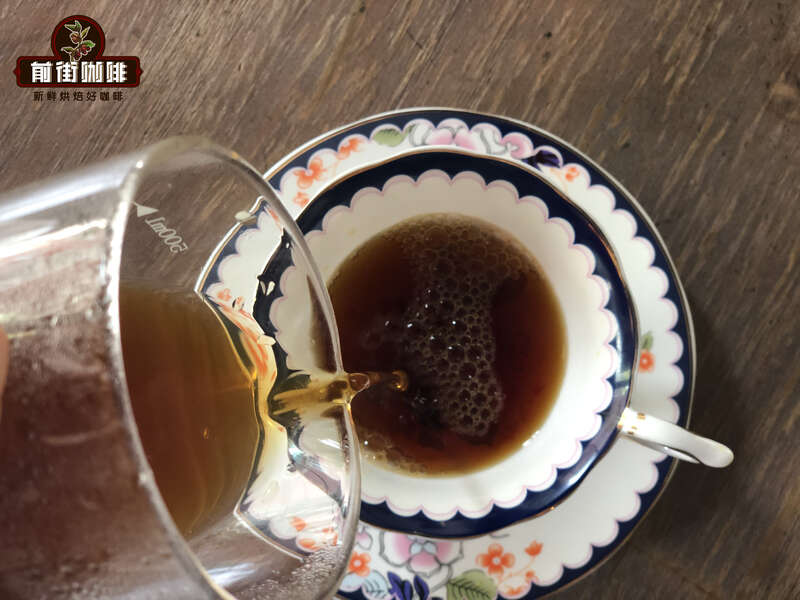
What is black coffee?
Black coffee refers to coffee made without any sugar or milk. Black coffee is made with only coffee beans and potable water. Because the coffee liquid brewed is dark in color, it is commonly known as black coffee. At present, there are many kinds of black coffee on the market. The black coffee in Qianjie currently offers espresso, American coffee, hand coffee and ice drop coffee.
Is black coffee as bitter as possible?
The taste of coffee includes several dimensions: sour, sweet, bitter, sweet and mellow. the taste of coffee beans from different areas is different, in addition to the unique properties of black coffee beans, the roasting degree of coffee beans, the fineness of coffee powder grinding, water temperature, brewing speed, techniques and so on, all determine the flavor of a cup of coffee.
Coffee from some places, such as Manning, is known for its mellow taste, and the bitterness of the taste is obvious. African beans are sour, but the bitterness is less prominent.
How do we choose black coffee beans that suit us?
There are two kinds of black coffee beans provided by Qianjie Coffee: one is individual coffee beans, and the other is Italian concentrated coffee beans. Individual coffee refers to the coffee produced from a specific producing area, a specific producing area and a specific plantation, with a unique special flavor that can reflect the local culture. Italian espresso coffee beans, also known as integrated coffee, is to mix a variety of individual coffee beans together, so as to give full play to the strengths of various individual coffee beans, and the comprehensive blending beans are made from coffee beans from different areas to make a more balanced taste.
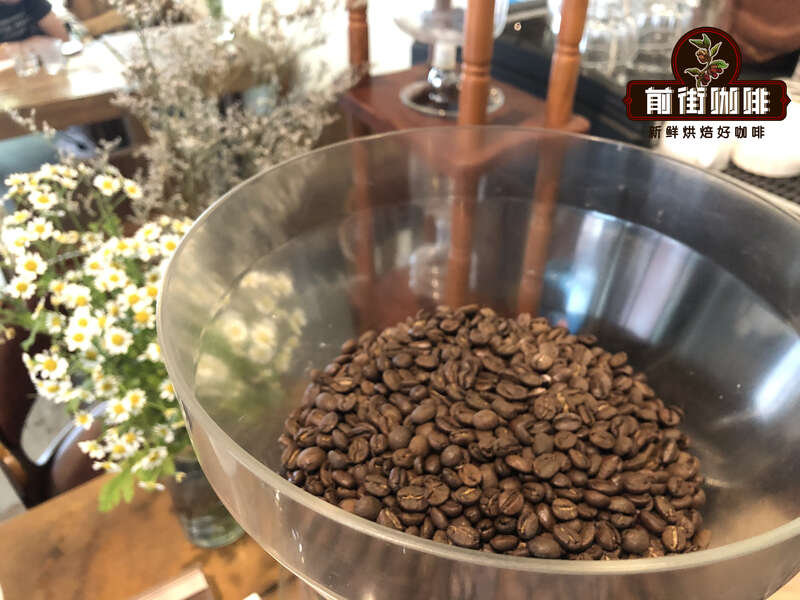
Qianjie Coffee is currently making espresso using a blend of beans treated in sherry buckets and sun-treated Yegashifi red cherries. 60% of the Honduran sherry barrel coffee beans provide flavor and mellow thickness for this mixed bean, and 40% of the sun Yega Sheffield provides more aroma and acidity.
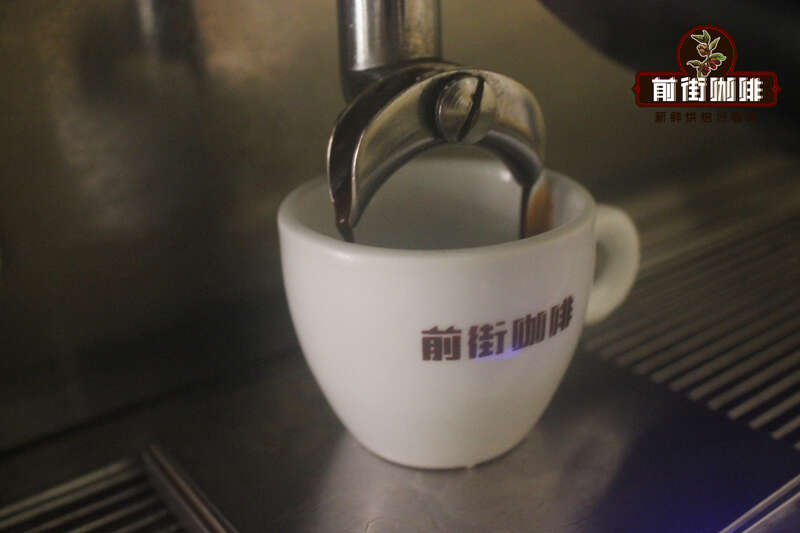
The production method of Qianjie espresso
Qianjie concentrated extraction parameters:
Grinder: Pegasus 900N
Degree of grinding: 1.6
Pressure: 9 bar ±2
Temperature: 90.5 ~ 96 °C
Time: 20: 30 sec
Powder content: 20g (double espresso)
Extraction amount: 40ml
Extracted espresso flavor: smooth taste, medium mellow thickness, palate with obvious acidity accompanied by a hint of berries, whisky, strong chocolate flavor.
The making method of Qianjie American Coffee
After Qianjie uses the espresso production method described above to extract espresso, iced American coffee is made into espresso in the ratio of 1:7 concentrate to ice water, that is, a single portion of 40ml concentrate with 280ml ice water. The ratio of Hot American Coffee is also 1280ml 20ml single espresso mixed with 140ml hot water, 40ml double concentrated with 280ml hot water.
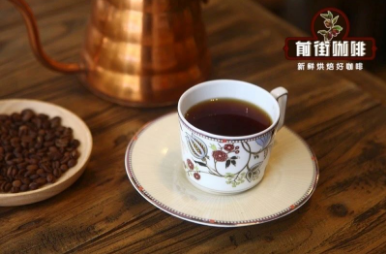
The method of making hand-made coffee in Qianjie
This time Qianjie Coffee uses Ethiopian Yega Xuefei as a demonstration of hand-brewing.
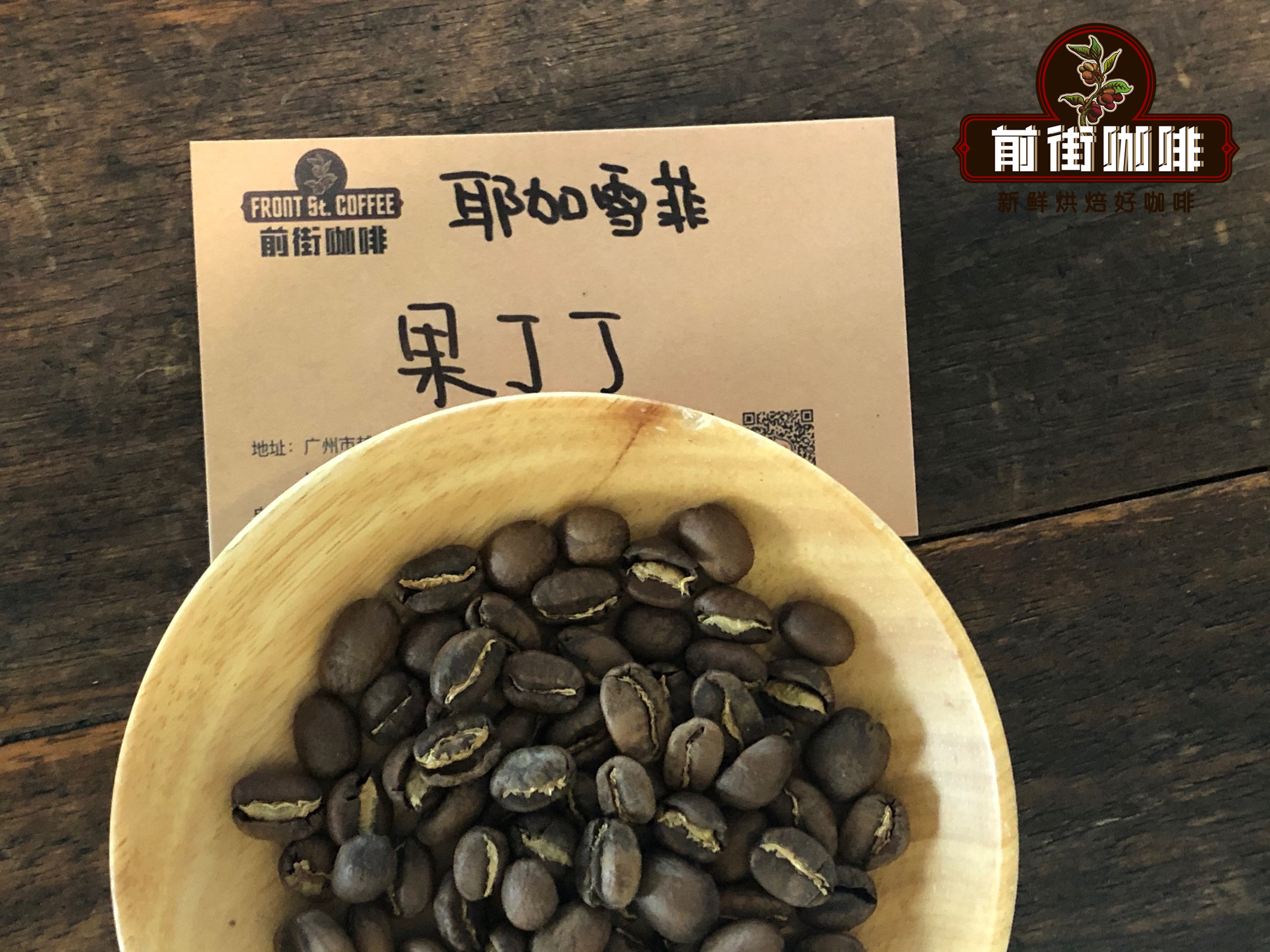
Producing area: Yega Xuefei Gedeo Zone
Altitude: 1900-2300m
Variety: original species (Heirloom)
Treatment: washing
Grade: G1
Filter cup: HARIO V60
Water temperature: 90ml, 91 degrees.
Degree of grinding: BG#6m (size of fine sugar)
Ratio of powder to water: 1:15
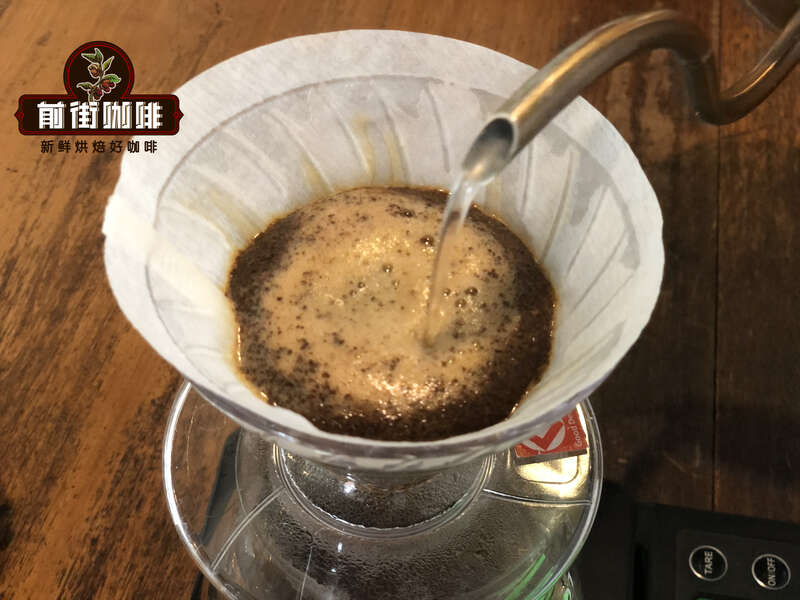
Qianjie cooking technique: the first section is filled with 30 grams of water for 30 seconds, followed by 95 grams (the electronic scale shows that about 125 grams), and the injection is completed in about 1 minute. When the water level drops to 2 grams in the powder layer, the remaining 100 grams are injected at 3 places (about 225 grams shown by the electronic scale), about 1 minute and 40 seconds. 1: 55 "~ 2: 00" titration is completed, remove the filter cup, and complete the extraction.
Yega Xuefei fruit dingding flavor: the entrance has bright acidity of citrus, full feeling of berry juice and obvious feeling of oolong tea.
Preparation method of ice drop coffee in Qianjie coffee
Ice drop coffee is a kind of coffee that takes time to brew. The taste of coffee brewed by different water temperature will be different, and the astringent substance of coffee is not easy to be dissolved at low temperature. Low temperature extraction is that coffee powder is exposed to water at low temperature for a long time, only flavor substances with smaller molecules, such as flower and fruit, are extracted, while flavor substances with larger molecules, such as smoking and roasting flavor, are difficult to be extracted. therefore, cold-soaked coffee is more able to drink the flavor of coffee beans, smooth taste, hierarchical and sweet obvious.
Use ice water to extract for a long time, after extraction, put into the refrigerator for fermentation, slightly fermented ice drop coffee, with a touch of fermented aroma, the taste will also tend to be thick.
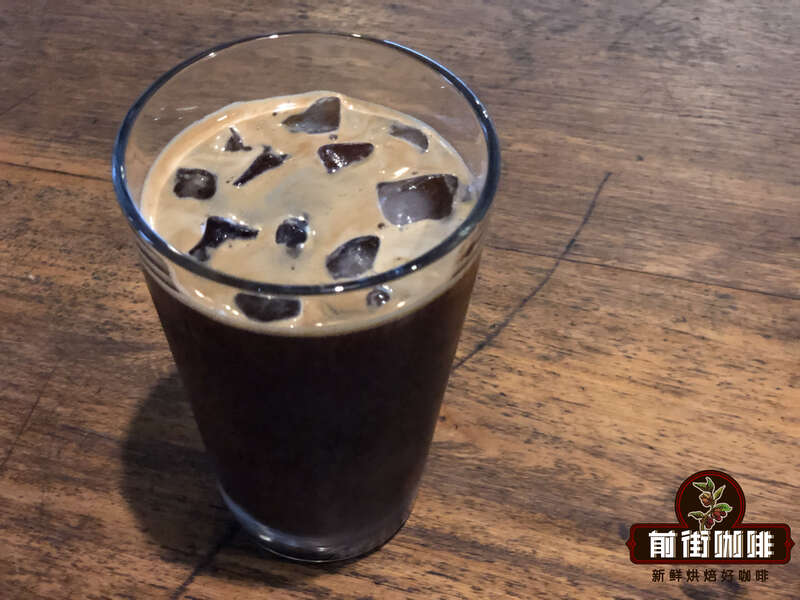
Parameters for making ice drops of coffee in Qianjie
Ratio: 1:10 (60g coffee powder 600ml ice water)
Ice water production: 1:1 edible ice and edible water
Degree of grinding: the size of coarse sugar (a little thicker than that of medium baking hand)
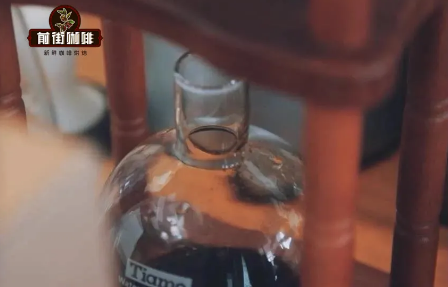
Steps for making iced coffee from Qianjie Coffee
1. Put a round filter paper in the lower part of the powder cup, wet the cup wall with water, put in the ground 60g coffee powder, and then shake the coffee surface, or you can use the weight of the powder hammer to gently press the powder layer to make the surface smooth.
two。 Spread a piece of filter paper on the coffee powder layer. Because the tension of the filter paper enables the water to evenly distribute the surface of the coffee powder layer for extraction, if there is no filter paper, the water droplets for a long time will drip the powder bed out of a pit.
3. Using ice water to wet the whole powder layer, this step is like hand steaming, which can improve the consistency of the extraction effect and the finished product.
4. Add 1:1 ice water to the drip bottle to adjust the falling speed. Qianjie recommends dripping at a speed of 7 drops in 10.7 seconds.
5. After the production is finished, it is poured into a sealed clean, water-free and oil-free bottle and put into the refrigerator for oxidation, so that the flavor molecules of ice drop coffee can be released and then tasted.
Important Notice :
前街咖啡 FrontStreet Coffee has moved to new addredd:
FrontStreet Coffee Address: 315,Donghua East Road,GuangZhou
Tel:020 38364473
- Prev
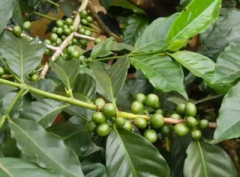
Why is some coffee sour? why is coffee sour? where does the sour quality of coffee come from?
Xiaobai who has just come into contact with a single cup of coffee is more or less surprised by the sour taste of the coffee. Most people's understanding of coffee is mellow and bitter, so where does the sour taste come from? This time on the front street, let's talk about why the coffee is sour. Coffee is a kind of fruit, and our common coffee beans are actually the seeds of this fruit. After the fruit is ripe,
- Next
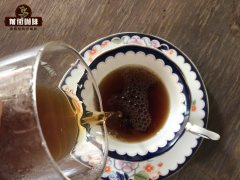
Black coffee, black coffee.
When it comes to black coffee, the first reaction of many friends is bitter and astringent, or American coffee can be thought of. Indeed, American coffee seems to have become synonymous with black coffee. A few years ago, before the fine coffee market developed, the quality of coffee beans produced in the United States was average, resulting in bitter and astringent American coffee extracted without flavor. In recent years, with the fine coffee
Related
- Beginners will see the "Coffee pull flower" guide!
- What is the difference between ice blog purified milk and ordinary milk coffee?
- Why is the Philippines the largest producer of crops in Liberia?
- For coffee extraction, should the fine powder be retained?
- How does extracted espresso fill pressed powder? How much strength does it take to press the powder?
- How to make jasmine cold extract coffee? Is the jasmine + latte good?
- Will this little toy really make the coffee taste better? How does Lily Drip affect coffee extraction?
- Will the action of slapping the filter cup also affect coffee extraction?
- What's the difference between powder-to-water ratio and powder-to-liquid ratio?
- What is the Ethiopian local species? What does it have to do with Heirloom native species?

